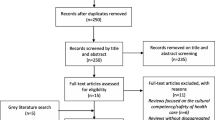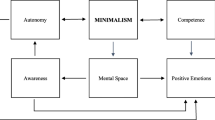Abstract
Cultural identity – who the Fulani think they are – informs thinking onillnesses they suffer. Conversely, illness, so very prevalent insub-Saharan Africa, provides Fulani with a constant reminder of theirdistinctive condition in Guinea. How they approach being ill also tellsFulani about themselves. The manner in which Fulani think they are sickexpresses their sense of difference from other ethnic groups. Schemas ofillness and of collective identity draw deeply from the same well andweb of thoughts. Three different approaches of schema theory are used totrace what ties illness to identity. These are 1) the schema asprototype; 2) a connectionist approach associates schemas for illnesswith other cultural schemas; and 3) a hierarchy of schemas. Thehierarchy includes master schemas for ethnic identity, schemas forillness generally and sub-schemas for separate ailments. Schemas orientand provide a framework for the practice of being Fulani – in the sensethat Bourdieu would describe practice as the application of practicalknowledge. Illnesses above the waist are said to be part of the Fulanicondition of belonging in arid climates while they need suffer thehumidity of Guinea. Illnesses below the waist are thought to arise whenone does not act like a Fulani, especially in matters of food and sex.As individuals disclose or conceal illness, as they discuss illness andthe problem of others they reflect standards of Fulani life – beingstrong of character not necessarily of body, being disciplined,rigorously Moslem, and leaders among lessors. To disregard standards orto suggest one does not care about such standards is shameful and placesone out of phase with others and with cultural norms. But to be in stepwith others and with cultural norms is to have pride in the self and thefoundations of Fulani life.
Similar content being viewed by others
REFERENCES
Agar, Michael H. and Jerry R. Hobbs 1985 How to Grow Schemata Out of Interviews. In Directions in Cognitive Anthropology. Janet W.D. Dougherty, ed. pp. 413-431. Urbana: University of Illinois.
Aikens, M.K., P.L. Alonso, U. D'Allesandro, H. Pickering, B.M. Greenwood, S.W. Lindsay and J. Todd 1993 A Malaria Control Trial Using Insecticide-Treated Bed Nets and Targeted Chemoprophyllaxis in a Rural Area of The Gambia, West Africa. Transactions of the Royal Society of Tropical Medicine and Hygiene 87(Suppl. 1): 25-30.
Armon-Jones, Claire 1986 The Thesis of Constructionism. In The Social Construction of Emotions. Rom Harré, ed. pp. 32-56. New York: Basil Blackwell.
Averill, James 1986 Acquisition of Emotions in Adulthood. In The Social Construction of Emotions. Rom Harré, ed. pp. 98-118. New York: Basil Blackwell.1980 A Constructivist View of Emotion. In Emotion Theory, Research and ExperienceI: Theories of Emotion. Robert Plutchik and Henry Keller, eds. pp. 305–339. NewYork: Academic Press.
Azarya, Victor 1978a Aristocrats Facing Change: The Fulbe in Guinea, Nigeria and Cameroon. Chicago: University of Chicago Press.1 1978b Dominance and Change in North Cameroon: The Fulbe Aristocracy. Beverly Hills: Sage Publications.
Azarya, Victor, Paul Kazuhisa Eguchi and Catherine VerEecke 1993 Introduction. In Unity and Diversity of a People: The Search for Fulbe Identity. Paul A.K. Eguchi and Victor Azarya, eds. pp. 1-9. National Museum of Ethnology, Osaka Japan: Senri Ethnological Studies 35.
Bã, Amadou Hampãté 1991 Amkoullel: L'enfant Peul. Paris: Actes Sud.
Barrett, Karen Caplovitz 1992 A Functionalist Approach to Shame and Guilt. In Self-Conscious Emotions. Tangney, June Price and Kurt W. Fischer, eds. pp. 25-62. New York: The Guilford Press.
Barth, Frederik, ed. 1969 Ethnic Groups and Boundaries: The Social Organization of Culture Difference. Boston: Little Brown.
Berghe, Pierre Vanden 1984 Class, Race and Ethnicity in Africa. Ethnic and Racial Studies 6(2): 220-236.
Bierschenk, Thomas 1995 Rituels Politiques et Construction de L'identité Ethnique des Peuls au Bénin. Cahiers Sciences Humains 32(2): 457-484.
Boesen, Elizabeth 1997 Identité et Démarcation: Les Pasteurs Peuls et Leurs Voisins Paysans. In Trajectoire Peules au Bénin. Thomas Bierschenk and Pierre-Yves le Meur eds. pp. 21-47. Paris: Editions Karthala.
Bourdieu, Pierre 1977 Outline of a Theory of Practice. Cambridge: Cambridge University Press.
Burnham, Philip and Murray Last 1991 From Pastoralist to Politician: The Problem of a Fulbe “Aristocracy.” Cahiers d’ Études Africaines 31(3): 313-357.
Casson, Ronald W. 1983 Schemata in Cognitive Anthropology. Annual Review of Anthropology 12: 429-462.
Chazon, Naomie, Robert Mortimer, John Ravenhill and Donald Rothchild 1992 Politics and Society in Contemporary Africa. Boulder: Lynn Rienner Publishers.
D'Andrade, Roy G. 1976 A Propositional Analysis of U.S. American Beliefs about Illness. In Meaning in Anthropology, K.H. Basso and H.A. Selby, eds. pp. 155-180. Albuquerque: University of New Mexico Press.1992a Cognitive Anthropology. In New Directions in Psychological Anthropology. Theodore Schwartz, Geoffrey M. White, and Catherine A. Lutz, eds. pp. 47–59. Cambridge: Cambridge University Press. 1992b Schemas and Motivation. In Human Motives and Cultural Models. R.G. D'Andrade and C. Strauss, eds. pp. 23–44. Cambridge: Cambridge University Press. 1995 The Development of Cognitive Anthropology. Cambridge: Cambridge University Press.
Diallo, Thierno 1986 Les Societés et la Civilisation des Peul. In Pastoralists of the West African Savanna, Mahdi Adamu and A.H.M. Kirk-Greene, eds. pp. 225-240. Manchester: Manchester University Press.
Dupire, Marguerite 1981 Réflexion sur l'Ethnicité Peule, Itinérances II: 165-181.Identit' e Ethnique et Processus d'Incorporation Tribale et ' Etatique. Cahiersd'Etudes Africaines 34(3): 265–280.
Eguchi, Paul K. and Victor Azarya, eds. 1993 Unity and Diversity of a People: The Search for Fulbe Identity. Senri Ethnological Studies 35. Osaka, Japan: National Museum of Ethnology.
Ehrenreich, Barbara and Dierdre English 1978 The Sick Women of the Upper Classes. In Cultural Crisis of Modern Medicine. Barbara Ehrenreich, ed. pp. 123-143. New York: Monthly Review Press.
Esman, Milton J. 1994 Ethnic Politics. Ithaca: Cornell University Press.
Frantz, Charles 1986 Fulani Continuity and Change under Five Flags. In Pastoralists of theWest African Savanna, Mahdi Adamu and A.H.M. Kirk-Greene, eds. pp. 1-39. Manchester University Press.
Gaden, Henri 1914 La Dialecte Peul du Fouta Senegalais. Paris: Ernest Leroux.
Garro, Linda C. 1988 Explaining High Blood Pressure: Variation in Knowledge about Illness. American Ethnologist 15: 98-119.Narrative Representations of Chronic Illness Experience: Cultural Models of Illness, Mind, and Body in Stories Concerning the Temporomandibular Joint (TMJ). Social Science and Medicine 38: 775–788.
Geertz, Clifford 1963 The Integrative Revolution. In Old Societies and New States. Clifford Geertz, ed. pp. 105-157. Glencoe: The Free Press.
Gordon, Andrew J. 1998 Seeing Disease Like the Fulani: Background Knowledge and Metaschemas for Malaria and other Problems. Knowledge and Society 11: 107-129.
Gordon, Andrew J. and Abdul Karim Baldé 1998 Dialogic Education and Understanding Schemas that Guide Dialogue: An Example from Guinea and Malaria Research. International Quarterly of Community Health Education 17(3): 221-236.
Guichard, Martine 1990 'Ethnicisation’ de la Société Peul de Borgou (Bénin). Cahiers d'Etudes Africaines 30(1): 17-44.
Harré, Rom 1986 An Outline of the Social Constructionist Viewpoint. In The Social Construction of Emotions. Rom Harré, ed. pp. 2-14 New York: Basil Blackwell.
Holland, Dorothy C. 1985 From Situation to Impression: How Americans Get to Know Themselves and One Another. In New Directions in Cognitive Anthropology. Janet W.D. Dougherty, ed. pp. 389-411. Urbana: University of Illinois Press.
Keller, Janet Dixin 1992 Schemes for Schemata. In New Directions in Psychological Anthropology. Theodore Schwartz, Geoffrey M. White, and Catherine A. Lutz, eds. pp. 59-67. Cambridge: Cambridge University Press.
Kirk-Green, A.H.M. 1986 Maudo Laawol Pulaaku: Survival and Symbiosis. In Pastoralists of the West African Savanna. Mahdi Adamu and A.H.M. Kirk-Greene, eds. pp. 225-240. Manchester: Manchester University Press
Kleinman, Arthur M. 1995 Writing at the Margin: Discourse Between Anthropology and Medicine. Berkeley: University of California Press.
Lewis, Michael 1990 Social Knowledge and Social Development. Merrill Palmer Quarterly 36(1): 93-116.
Majok, Aggrey Ayuen and Calvin W. Schwabe 1996 Development among Africa's Migratory Pastoralists. Westport, CN: Bergin and Garvey.
Mascolo, Michael F. and Kurt W. Fischer 1992 Developmental Transformations in Appraisals for Pride, Shame and Guilt. In Self-Conscious Emotions. Tangney, June Price and Kurt W. Fischer, eds. pp. 54-113 New York: The Guilford Press.
Mckay, James 1982 An Exploratory Synthesis of Primordial and Mobilizationist Approaches to Ethnic Phnenomena. Ethnic and Racial Studies 5(4): 395-420.
Ogawa, Ryo 1992 Ethnic Identity and Social Interaction: A Reflection on Fulbe Identity. In Unity and Diversity of a People: The Search for Fulbe Identity. Paul K. Eguchi and Victor Azarya, eds. pp. 119-137. National Museum of Ethnology Osaka Japan: Senri Ethnological Studies 35.
Osaghae, Eghosa H. 1994 Ethnicity in Africa or African Ethnicity. In African Perspectives on Development. Ulf Himmelstrand, Kabiru Kinyanjui and Edward Mburugu, eds. pp. 137-151 New York: St. Martins Press.
Price, Laurie 1987 Ecuadorian Illness Stories: Cultural Knowlege in Natural Discourse. In Cultural Models in Language and Thought. Dorothy Holland and Naomi Quinn, eds. New York: Cambridge University Press.
Quinn, Naomi and Dorothy Holland 1987 Culture and Cognition. In Cultural Models in Language and Thought. Quinn, Naomi and Dorothy Holland, eds. pp. 3-40. Cambridge: Cambridge University Press.
Riesman, Paul 1992 First Find Your Child a Good Mother. New Brunswick: Rutgers University Press.Freedom in Fulani Social Life. Chicago: University of Chicago Press.
Rubel, Arthur L and Michael, R. Hass 1996 Ethnomedicine in Medical Anthropology: Contemporary Theory and Method. Carolyn Sargent and Thomas M. Johnson, eds. pp. 113-130. Westport: Praeger.
Stenning, Derrick J. 1959 Savannah Nomads. London: University of Oxford Press.
Stipek, Deborah J. 1983 A Developmental Analysis of Pride and Shame Human Development 26: 42-54.
Strauss, Claudia 1992a Models andMotives: Human Motives and Cultural Models. In Human Motives and Cultural Models. Roy D'Andrade and Claudia Strauss, eds. pp. 1-20. Cambridge: Cambridge University Press.What Makes Tony Run? In Human Motives and Cultural Models. Roy D'Andrade and Claudia Strauss, eds. pp. 191–224. Cambridge: Cambridge University Press. Strauss, Claudia and Naomi Quinn
Strauss, Claudia and Naomi Quinn 1997 A Cognitive Theory of Culture Meaning. Cambridge: Cambridge University Press.
Tangney, June Price and Kurt W. Fischer 1992 The Self-Conscious Emotions. New York: The Guilford Press.
Ver Eeke, Catherine 1987 Pulaaku: Ethnic Identity among the Adamawa Fulbe. Annals of Borno 3: 91-106.1 1989 From Pasture to Purdah: The Transformation of Women's Roles and Identity among the Adamawa Fulbe Ethnology 18: 53-73.
2 1993a Traditions of Exclusiveness and Ethnic Identity in a Changing African Pastoralist Society: The Fulbe of Adamawa, Nigeria. Ethnic Groups 10: 301-321.3 1993b “It is Better to Die than to be Shamed”: Cultural and Moral Dimension ofWomen's Trading in an Islamic Nigerian Society. Anthropos 1993: 403-417.
Young, Crawford 1998 Ethnic Diversity and Public Policy: A Comparative Inquiry. New York: St. Martin's Press
Author information
Authors and Affiliations
Rights and permissions
About this article
Cite this article
Gordon, A.J. Cultural Identity and Illness: Fulani Views. Cult Med Psychiatry 24, 297–330 (2000). https://doi.org/10.1023/A:1005677825795
Issue Date:
DOI: https://doi.org/10.1023/A:1005677825795




